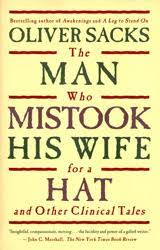Ryan regularly goes into rants about how he thinks less of people who don’t suffer from auditory hallucinations.
This is why @Susanna is railing against this.
My theory is people with no inner monologue has a “lower latency”.
Meanwhile people with inner monologue can “run virtual machines”.
Both have advantages and disadvantages.
ryans is being facetious… ![]()
This topic wasn’t meant to be a discussion on paranoid delusions & psychotic disfunction.
I read his book - like 4-5 years ago

The inner critic (critique) is the counterweight in decision make.
About a year ago, there was a somewhat related news article about people that had issues visualizing or creating mental imagery (aphantasia). I wonder if this is a loosely related topic?
We even have a forum poster that talked about it.
Here’s an interesting article on what it’s like to not have an inner dialogue. I wasn’t aware it was possible not to have one until Ryan brought it up ![]()
Some of the comments mentioned in the article give the opposite impression. Especially for communication, it sounds like not “thinking in words” can be a hindrance.
I wouldn’t say it’s a hindrance. I can put thoughts into words at the same pace I speak. Quicker than I should speak really, I often slip into speaking too fast. I’m perhaps more eloquent in written language, but I have no problems whatsoever communicating without needing to parrot whatever some internal voice tells me to say.
I can’t speak for others, but my inner dialogue does not work that way exactly.
When I’m talking, I’m just talking, no inner dialogue.
when listening, i am mostly listening, to the other person, again, pretty much no inner dialogue.
But, when thinking, it might be inner dialogue (as in, thinking through both sides) or could just be thinking.
I guess it’s hard to say precisely when it’s just thinking, and when it’s a dialogue.
I guess, when trying to reason?
Like, when driving, and one sees another person do something bad, one might just think “what an idiot” which to me, is not really a monologue, nor dialogue.
But, when reasoning the pro’s and cons of having a third slice of cheesecake, I might go back and forth in my head, like:
‘do I want more’
“yes”
‘have I already had enough’
“yes, but still gonna”
‘I should really cut back’
" "
nom nom nom nom
Or, like deciding on a computer case,
“not enough 5 1/4 bays”
‘but looks super cool’
“plastic window instead of glass”
‘still looks really cool’
“yeah, is cool…”
Or in queue in a bar
“beer of shorts”
‘only gonna be out for 3 hours, prolly short’
“but, it is super hot out, and we gonna be in the sun”
‘beer is super compelling’
“beer wins…”
I don’t always have a back and forth, I would say less than one time a day, more than 2 times a week?
So not constantly.
And, the two sides, are both me, not external voices / other people / schizophrenia.
I have not (yet) wondered if any particular pair of jeans would or would not make my ass look fat, which would just be a thought, but if I considered pro’s/cons, then I would count that as a dialogue.
I think.
Anyone else dissagree / have a better way of putting it?
Unless I am just being a weird freak.
(thanks for reading my tedx talk. no wonder everyone hates the x version, it’s a pale comparison)
Yes, but only because you talk yourself out of having cheesecake, and still want 5 1/4" drive bays.
![]()
3rd slice is probably the most one should have… in one sitting…
Just out-psych that nagging dialogue and dont slice it. One cheesecake isnt 3 inefficient servings.
Nah, that’s an internal monologue. Sorry dude, you’re just an NPC acting out a script.
Homer [the Simpson not the poet] depicted a dialogue at least a couple times in disagreements. Id certainly reason in my head but I dont have a conversation speaking aloud to my self. Although I have known those types too that reason aloud and specifically they were “brilliant scienticians”.
Then the procrastinator autist motto:
“All right, brain. I don’t like you and you don’t like me, but let’s just do this and I can get back to killing you with beer.”
Joke about Korg Volcas and shoving it… and the Korg Monologue being much bigger ![]()
But isn’t the “condition” the lack of a literal inner Monologue, i.e., a person whose thoughts are not organized via language (as in the actual language centers of the brain are not active)?
People who, during contemplation, think not in words but perhaps strictly in visuals or feelings.
I would go so far as to say that this style of non-language contemplation is exactly what many would describe AS meditation.
I myself have only been able to achieve what I would actually call a meditative state, a few times and I was only able to achieve that through breath control and quieting my inner monologue.
I think we should apply Occam’s Razor to the issue. One group of people just think. The other group suffers hallucinations and delude themselves into believing that’s what thought is.
It seems quite clear which group are suffering from a condition here.
And some dont dream in color.
So?
You guys need to read the Trivium. Some examples regarding how things exist before we actually name them could shed some light on this discussion.
Buffered brain vs. unbuffered brain ? That looks an interesting idea, worth exploring.
To add more complexity to the topic, since ancient times there is a way to classify human temperament into 4 archetypes: choleric, melancholic, phlegmatic and sanguine. I wonder if the existence or not of inner dialogue or not has something to do with that as well. Clearly some people live more introverted lives, while others live more extroverted lives.
I wonder if there’s a correlation between being introverted + inner dialogues vs being extroverted + unbuffered conscious.
Consider the possibility there is a degree of cofunctions between though and imagination here. Imagination is a mental process, but it is resynthesis of visual and auditory information. You don’t need words to imagine sights or sounds or even sensations.
Thought as in reasoning however doesn’t work like that, you need the words to reason, logical problems need labels so you can know the attributes and properties of things and the logical options and structures this can facilitate. Things don’t need our labels, we need the labels so we can communicate things, accumulate, structure, process and exchange information.
In that context thought is nearly impossible without words. It would be impossible to accumulate the requisite information for complex thought to begin with. Words are not superfluous or constraining in the least, and many words carry more meaning than people manage to make out of their entire lives.
Even the most dim-witted people in the world think - they just happen to suck at it. So I don’t think we should refer to thought as in “any thought” but specifically “rational, intelligent, logical problem solving thought” - though that investigates, analyzes, renders insight into complex systems and processes and ways to alter their outcome.
The inner dialogue is intended to serve as quality control, it is your first peer, the first point of scrutiny over your though, before it is output into the world. It is a chance to acknowledge and correct your own biases. It takes a special kind of stupidity to be so full of yourself to consider yourself above your own scrutiny, which is one of the reasons why someone might lack inner dialogue.
Also consider the difference between dialogue and chatter. Talking yourself through your activities doesn’t constitute meaningful dialogue, a dialogue is the exchange of meaningful information.
Inner dialogue people are not fast to spit out results, but they can produce results that listers can’t produce given unlimited amount of time. Listers are fast to yield results but shallow in their range of available output, they can’t be expected to solve deep logical problems, and they do things through memorization rather than understanding. Listers are task to task, tasks are scripted routines, there is no greater process that would call for strategy or planning that calls for original intelligent thought. As a results listers are poor troubleshooters and problem solvers. They are easily discouraged from engaging in challenging undertakings and scared off complex subjects.
Listers are not that much different, merely victims of a system that exists on pushing itself to do the thinking for us. Any unused desirable trait becomes eroded and ultimately lost to evolution.
Listers are the classical “idealists” who see the world as a set principle, that comes and works as-is, a back-box if you will and all you do is fit in it realtime, where inner dialogue people are classical realists, who acknowledge that reality is governed by a set of rules and principles that can be studied, understood and altered, which takes time.
Ultimately, Listers are the “doers”, inner dialogue people are the “thinkers” and inhuman psychopaths are the thuggish establishment that controls it all. That last part pretty much makes the “listers vs inner dialogists” argument redundant, as clearly both groups are insufficiently intelligent to know any better than facilitating the corrupt order of the establishment of even dumber people…

